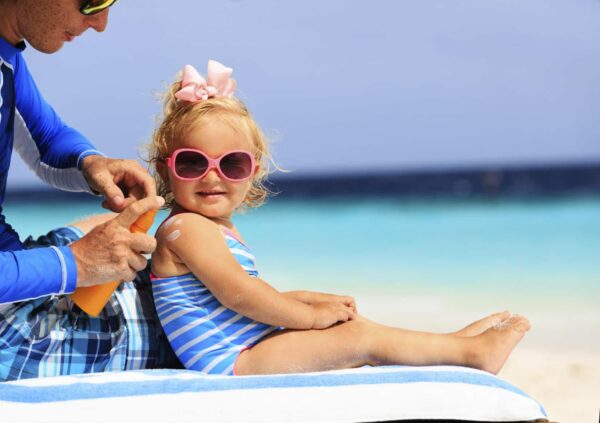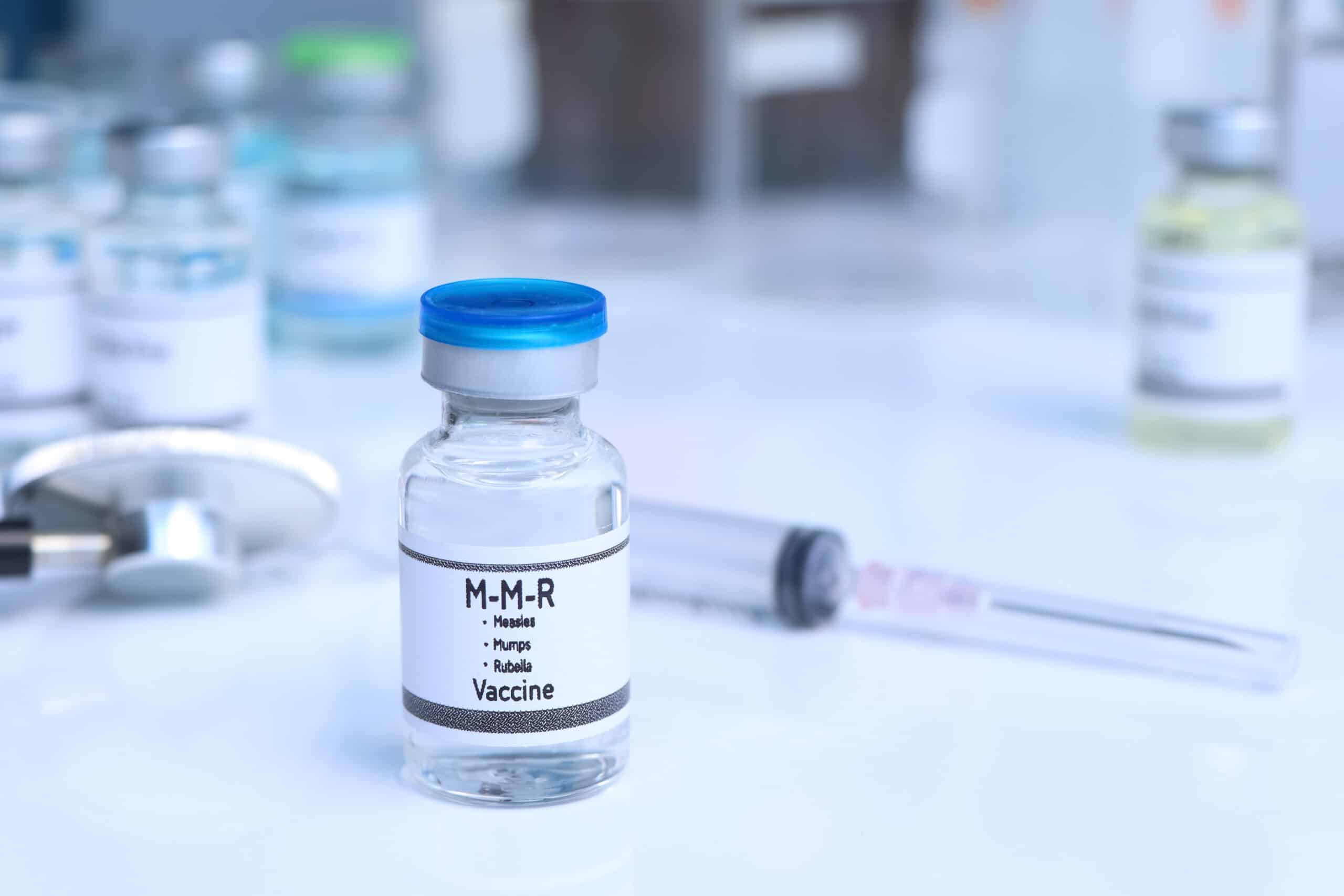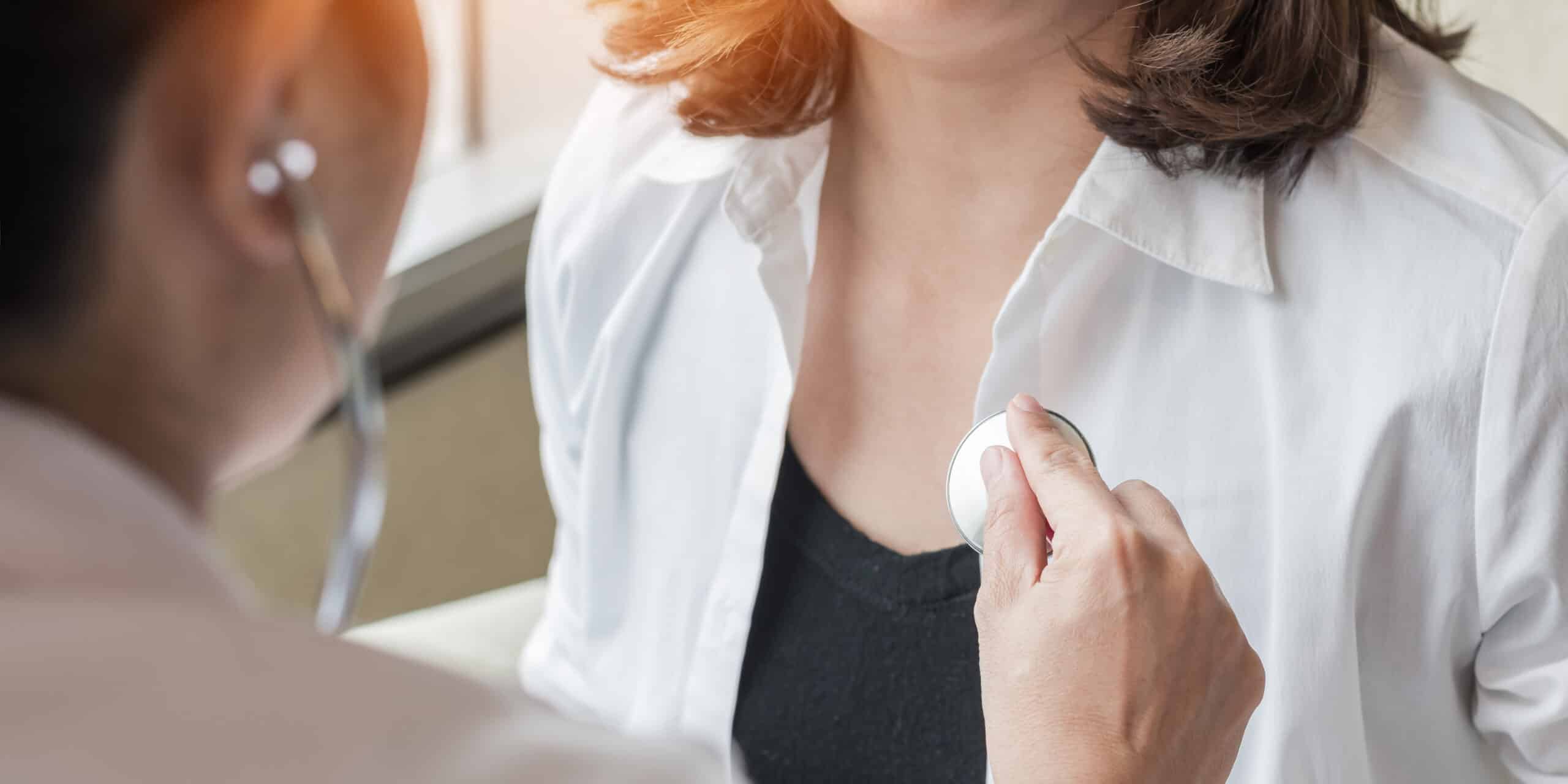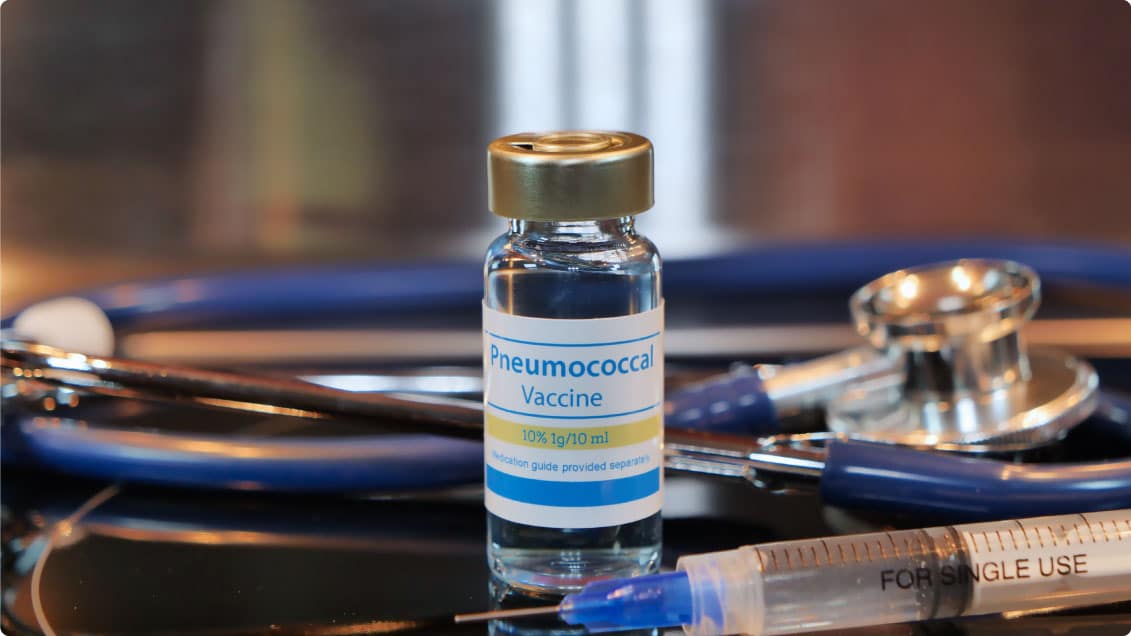With plethora of sunscreens in the market most people wonder which one to use or whether they will work at all.It’s the first hot and sunny day of the summer, and you are ready to embrace it. You pack up your family and head to the beach. You struggle to apply SPF 30+ sunscreen to your child’s skin, and then watch him run off to play in the sand. But is your sunscreen really protecting your family from harmful UV rays? Or has all that effort been a waste of time?
Your sunscreen is not effective or safe
This may come as a shock, but most sunscreens are not effective. In a 2016 study by Consumer Reports, over 65 sunscreens (lotions, sprays, and sticks) were tested. A whopping 45% of sunscreens contained less than 30 SPF, even though they all claimed 30 SPF or higher.
Aside from the obvious issue of not providing the coverage promised, most sunscreens also contain harmful elements that could be damaging to you and your family. A full 70% of non-mineral sunscreens contain oxybenzone, a hormone disruptor that could cause negative hormonal effects on your kids.
Additionally, 16% of sunscreens contain retinyl, a form of Vitamin A that has been shown to damage skin and cause tumors in animals. Imagine: sunscreen that causes skin problems! That’s the exact opposite of what it’s supposed to do. Retinyl also has been shown to cause nausea, headaches, and cerebral edema.
How can you protect yourself?
First, you need to find the right kind of sunscreen. Look for brands that are made with zinc and titanium. Some of the best all natural sunscreen brands are Badger All Natural Sunscreen
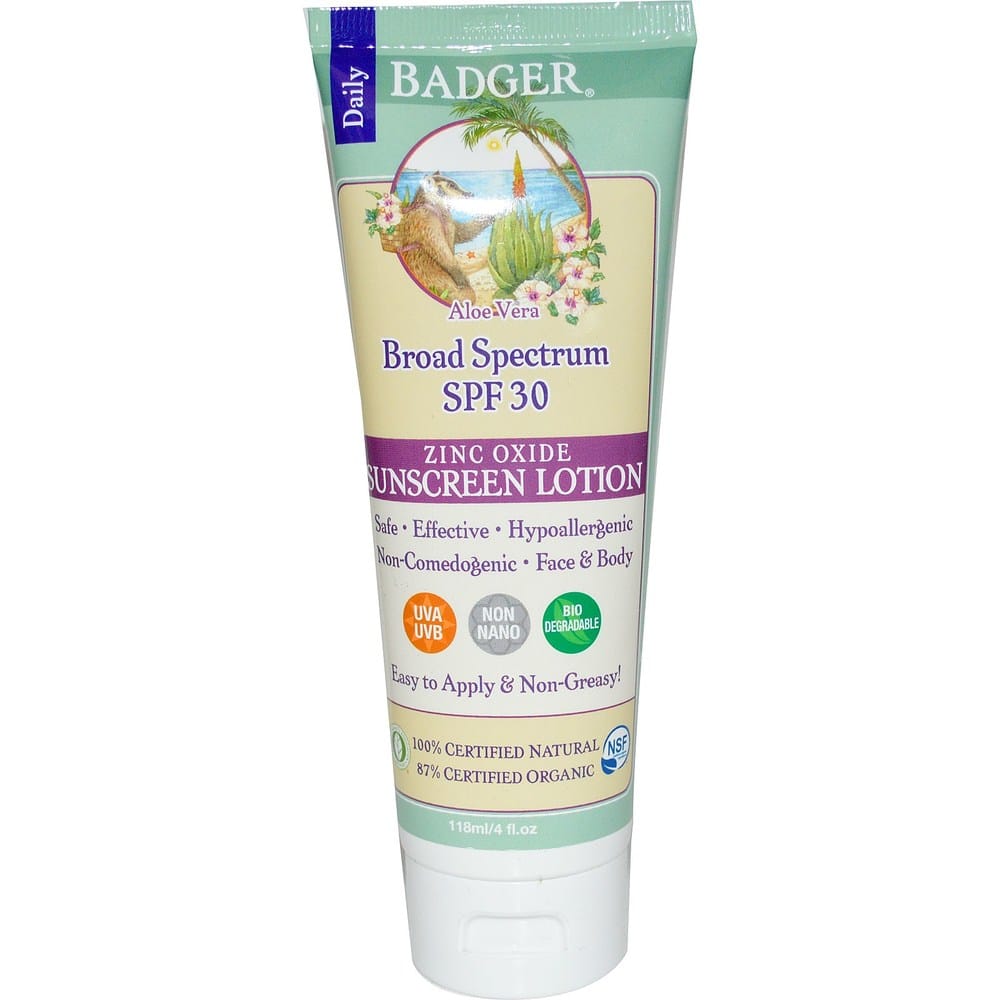
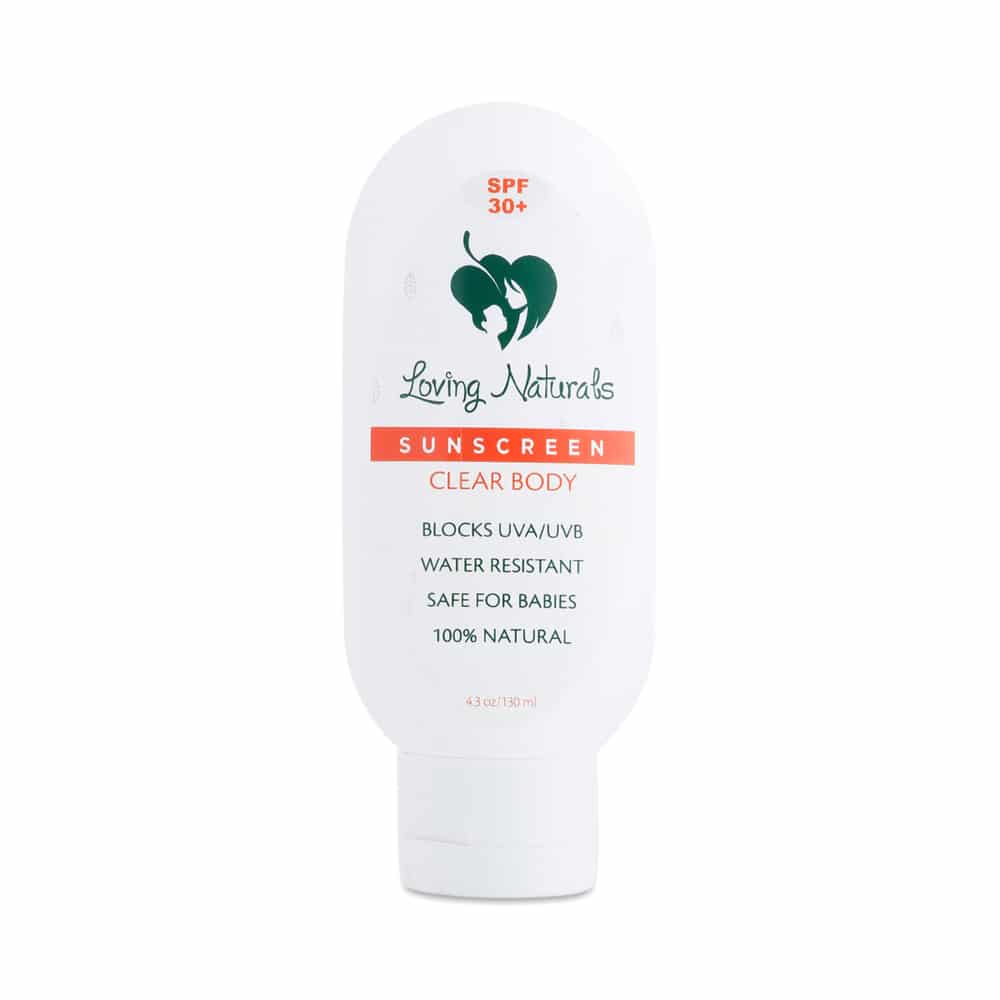
Loving Naturals Clear Sunscreen (for babies). All these brands contain zinc and/or titanium. None contain harmful ingredients like retinyl or oxybenzone. Also, they are all lotions. It’s important to avoid sprays, as they are almost impossible to apply correctly, and it’s very likely you will ingest some of the sunscreen.
Consumer reports have released their 2016 best rated sunscreens and below are a few more to consider that have titanium dioxide or zinc oxide: Fallene Cotz Plus SPF 58 Water Resistant
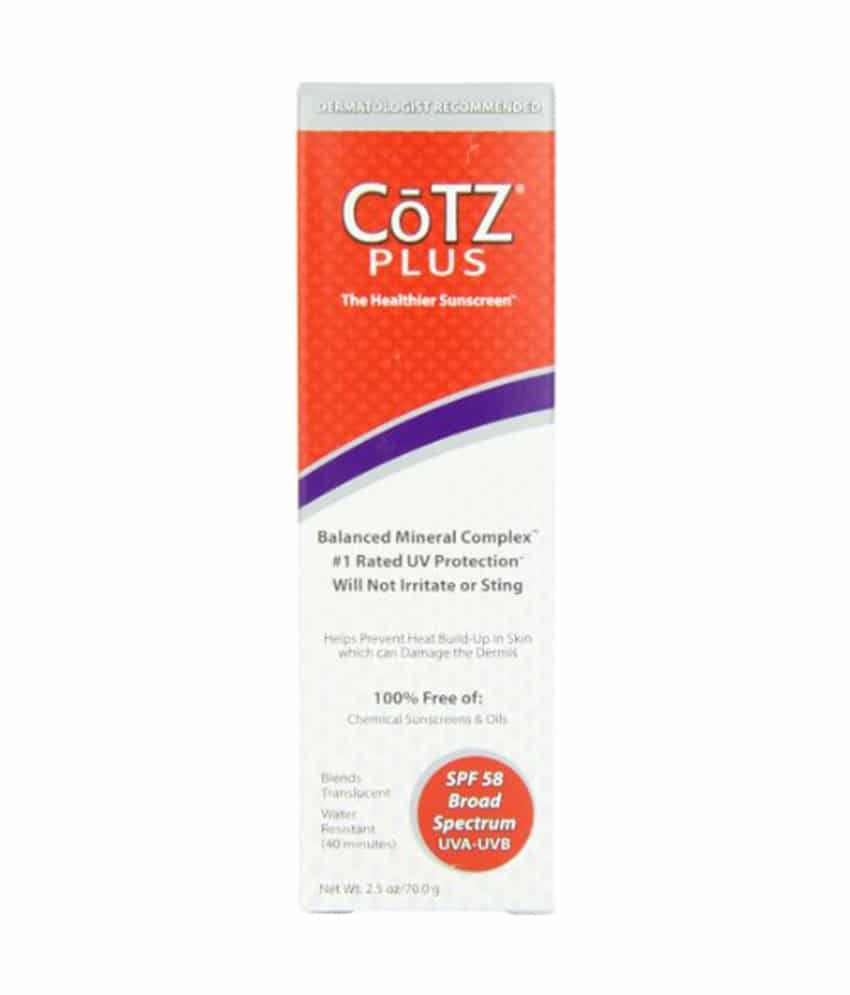
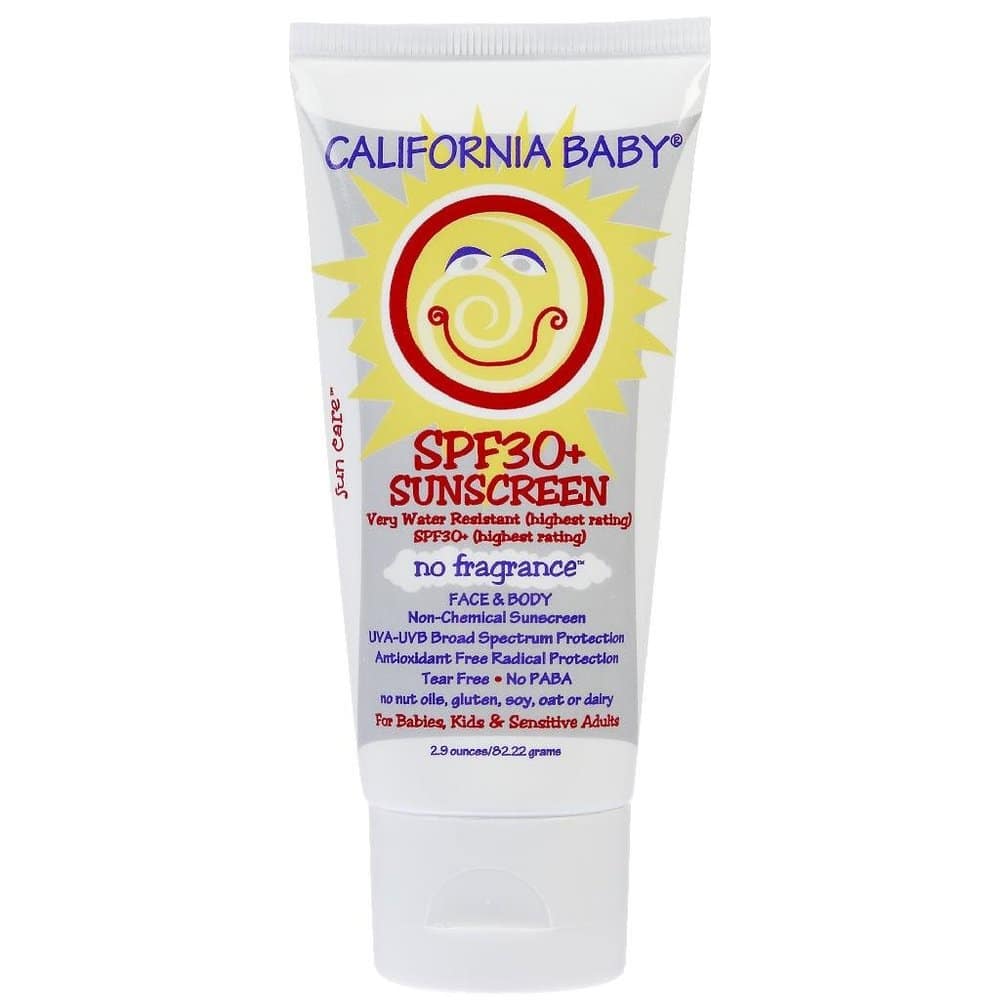
and California Baby Super Sensitive Sunscreen Lotion – SPF 30. But sunscreen is not the only way (or even the best way) to protect yourself from the sun. In a recent study in the Journal of the American Academy of Dermatology, 750 people with a history of skin cancer were asked about their habits in the sun, They were asked what they were doing in the sun and when they had received sunburns. The results showed that seeking shade and wearing protective clothing were associated with a decreased rate of sunburns and skin cancer, while the use of sunscreen was not.
How To Properly Apply Sunscreen
Most people apply sunscreen incorrectly. The American Academy of Dermatology recommends reapplying your sunscreen every 2 hours or after swimming or sweating. Adults should use about one ounce of sunscreen to fully cover exposed skin. That’s a lot more than you are probably used to using. It’s about a shot glass full. For kids, make sure all of their exposed skin is completed saturated and covered up. And be sure to use a cream or a lotion (not a spray).
Conclusion
There are a lot of factors you need to consider when protecting yourself and your family from the sun’s harmful rays. You need to find a broad-spectrum sunscreen (to protect from both UVA and UVB rays). You should choose a lotion or cream sunscreen made with zinc or titanium. Apply it liberally every two hours. It’s also important to find other ways to protect your skin. Find a tree, wear protective clothing, and avoid spending long hours in the sun.
It’s hard to find the right kind of sunscreen for your family. You want a product that is safe, effective, and lasting. Spend a little time looking for the right fit for you. That way, you can feel protected and safe the next time you venture outdoors, whether it’s to run through the sprinkler or just go for a stroll on the beach in the warm sunshine.
For more information about sunscreens, which one you should consider using to protect your skin better please reach out to Peninsula Doctor
